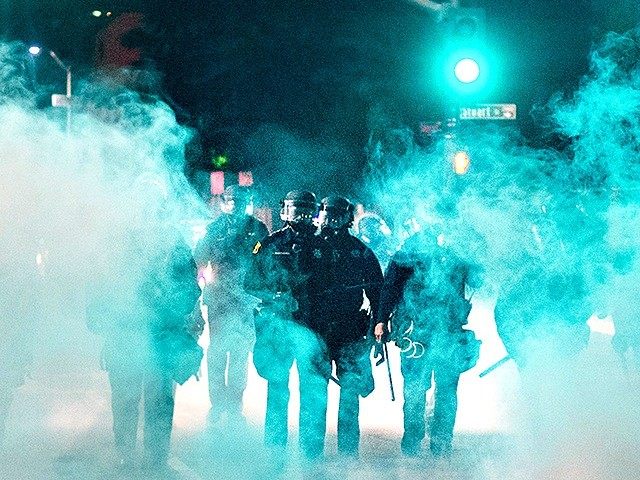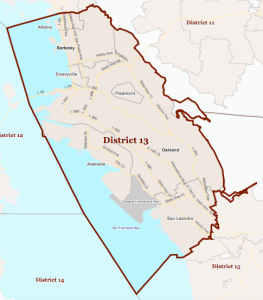Editor’s note: The presidential nominating contests in both parties will come down to the California primary.
For Democrats, 548 delegates are at stake — 11.5% of the total. For Republicans, 172 delegates are at stage — 6.9% of the total. Of those, for Democrats, 158 (29%) are divided proportionally on a statewide basis, while 317 (58%) are divided proportionally by congressional district, with each district providing between 5 and 8 delegates. The remaining 73 (13%) are “superdelegates.”
For Republicans, 13 (8%) are awarded statewide, with ten going to the candidate with the highest number of votes on a winner-take-all basis, and three going to “pre-determined” delegates (the State Chair, National Committeewoman, National Committeeman). Meanwhile, 159 (92%) are awarded by congressional district on a winner-take-all basis, with each district providing 3 delegates.
The result: a district-by-district battle in both parties, which we preview for you here.
CA-13: This district, which includes Berkeley, rivals San Francisco as an iconic left-wing stronghold, with Black Lives Matter protests running rampant. Represented by Barbara Lee — one of the most left-wing members of Congress — the district also has a large minority population. There are even fewer Republican voters in the 13th than across the Bay in the 12th. For the first time in history, the Berkeley College Republicans could have a direct impact.
Prospects:
Democrats: Clinton and Sanders will fight to a draw, with minority voters throwing their support to Hillary.
Clinton 4, Sanders 4
Republicans: Trump could win based on voter frustration with Black Lives Matter and the GOP establishment.
Trump 3, Kasich 0, Cruz 0
Joel B. Pollak is Senior Editor-at-Large at Breitbart News. His new e-book, Leadership Secrets of the Kings and Prophets: What the Bible’s Struggles Teach Us About Today, is on sale through Amazon Kindle Direct. Follow him on Twitter at @joelpollak.


COMMENTS
Please let us know if you're having issues with commenting.